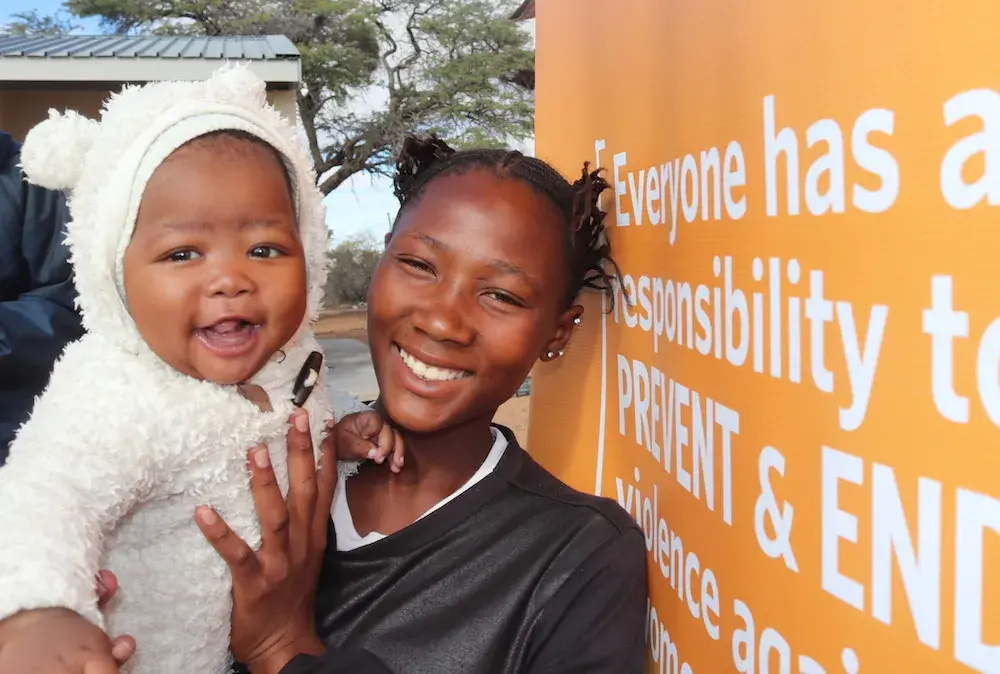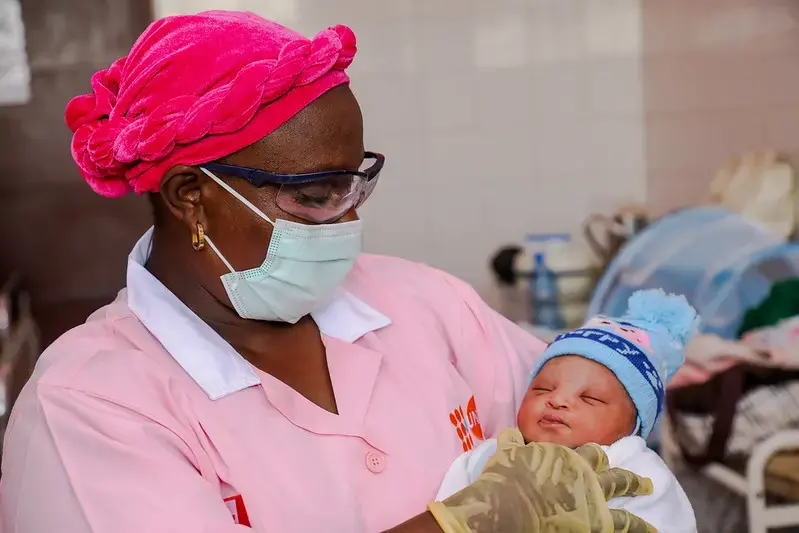GABORONE, Botswana—It is a particularly difficult time to be pregnant. The last thing any woman would want is to bring her child into a world of uncertainty, but that’s exactly what pregnant women around the world are facing right now due to the COVID-19 pandemic.
When Neo Samuel*, 22, found out six months ago that she was expecting her first child, she was elated. Yet things took a different turn when the Government of Botswana announced the first three confirmed cases of COVID-19 in the country on March 30.
Ms. Samuel’s pregnancy planning was thrown into disarray. Under the lockdown regulations she has found herself alone as her partner and family live in other towns. And their regular weekends visits have had to stop as movement between towns has been prohibited.
Not surprisingly, her happiness over the pending arrival of her baby has been replaced by anxiety.
To exacerbate things, a few weeks into lockdown personal stories were being posted on social media platforms about pregnant women whose antenatal appointments were postponed or cancelled, while some were sent away from health facilities without being helped.
The question is no longer whether you will be a good enough mother but whether you will be able to ensure your baby is healthy and protected and if you will survive through this.
“Pregnant women are extremely vulnerable right now,” Ms. Samuel says. “We used to worry just about delivering healthy babies and being good mothers. But as we face the pandemic, the question is no longer whether you will be a good enough mother but whether you will be able to ensure your baby is healthy and protected and if you will survive through this.”
While there is currently no evidence to suggest that pregnant women are at greater risk of contracting the coronavirus than the general population, nor any evidence that suggests that the virus causes an increased risk of miscarriage if the mother is infected, the thought of going to a hospital fills her with an overwhelming sense of dread, she says.
Midwives still providing critical support
Karabo Pono, 29, is also pregnant and while she has similar concerns, she feels a sense of relief after an antenatal appointment with her midwife.
They are taking every measure to preserve our health during pregnancy, and I believe her because I have seen quite a positive change in how we are assisted.
“It has been such an emotional rollercoaster for me. During my appointment I managed to have an extensive discussion with my midwife concerning my health and safety. She reassured me that they are taking every measure to preserve our health during pregnancy, and I believe her because I have seen quite a positive change in how we are assisted,” she says.
She was pleased that staff at her clinic have reduced the number of scheduled antenatal clinic appointments to minimize overcrowding, and they have marked the designated waiting area to maintain physical distancing. The clinic has also taken measures to make sure that pregnant women do not mix with general patients, and they provide key messages about the virus during appointments to minimize fear and confusion.
However, getting a permit to allow movement to access services was frustrating for her as the online application was not approved on time for her appointment. This meant she had to apply in person, something she would rather have avoided.
UNFPA in Botswana supports the Ministry of Health and Wellness (MoHW) to ensure that pregnant women like Ms. Samuel and Ms. Pono are able to keep accessing the essential services they need during the pandemic.
The ministry has prioritized maternal health (antenatal care, postnatal care, delivery and family planning), child welfare and antiretroviral treatment (ART) as minimum essential packages of service that should not be interrupted during the lockdown.
UNFPA is supporting the MoHW to develop facility level guidelines (including algorithms and checklists) on the management of pregnant women in the face of COVID-19. During pandemics, when health and social systems are struggling to cope, sexual and reproductive health services are often side-lined, which leads to increased maternal mortality and morbidity.
UNFPA’s support for COVID-19 preparedness and response focuses on ensuring continuity of sexual and reproductive health services and interventions, including protection for health workers, addressing gender-based violence and ensuring continuity of supply of modern contraceptives and reproductive health commodities.
- Priscilla Rabasimane
* Names have been changed to protect their privacy.





